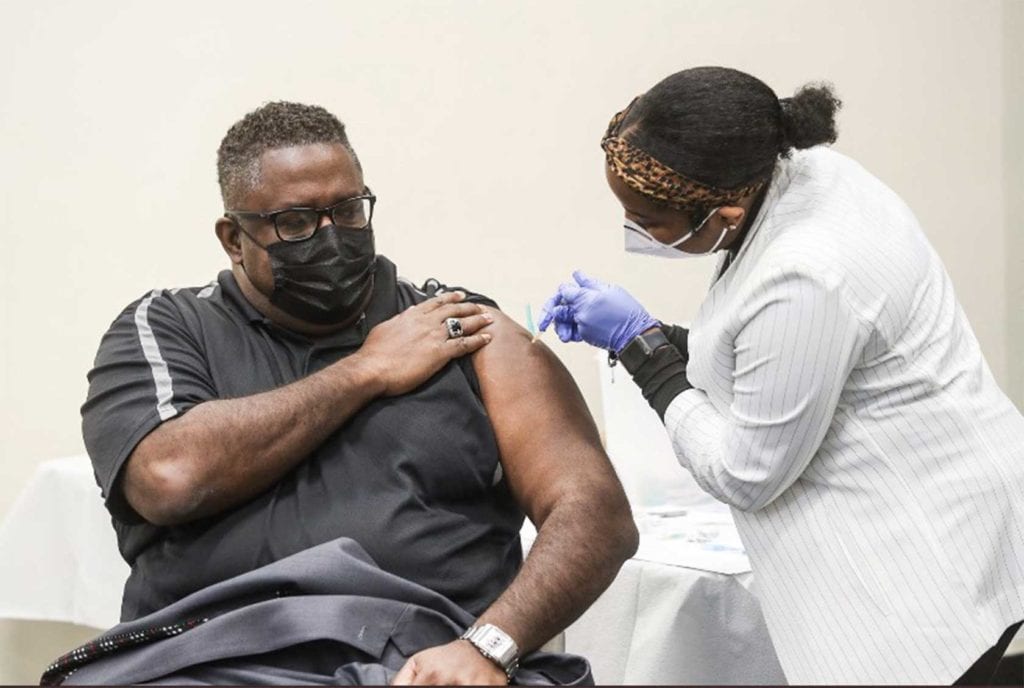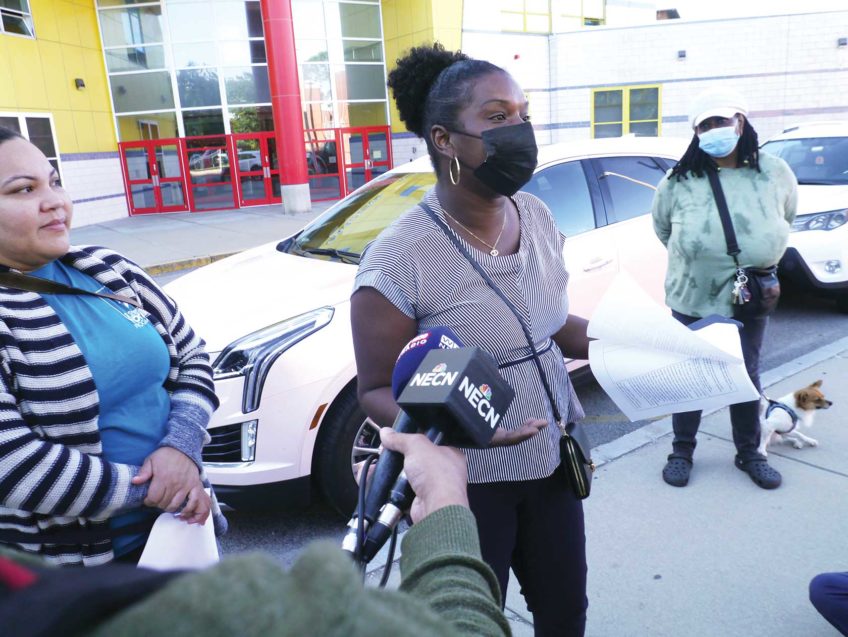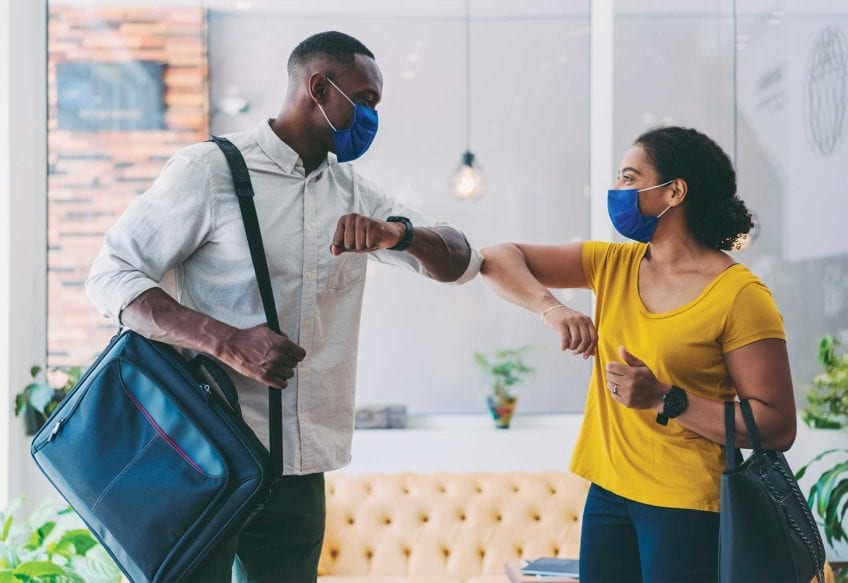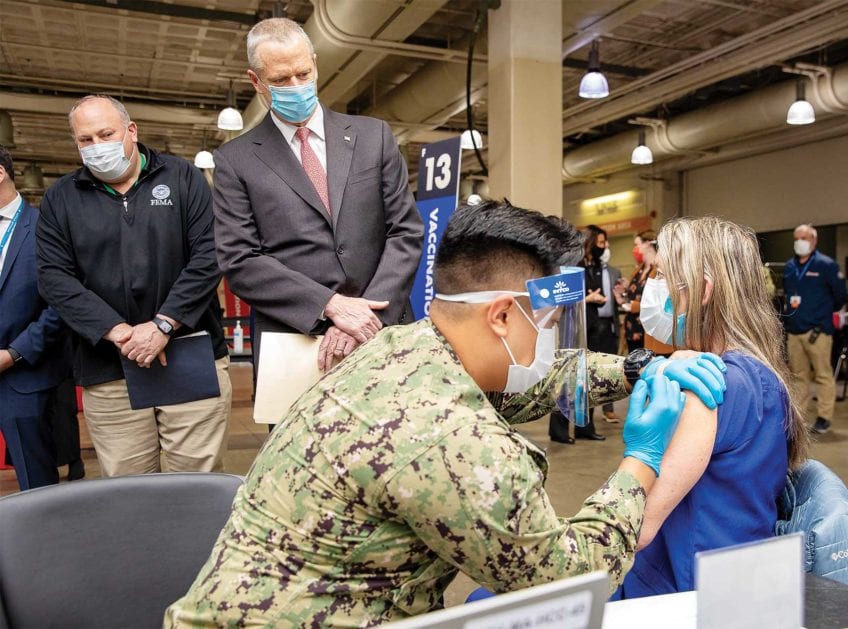
Stan McLaren is used to being the first. He is the first born, the first in his family to go to college.
It was only fitting then that he was the first at the Harvard Street Neighborhood Health Center to receive the COVID-19 vaccine.
McLaren was not grand-standing, however. Rather, he was setting an example. “We see some of the sickest patients,” he explained. And, unfortunately, some of the most likely to reject the vaccine.
According to the Boston Public Health Commission, Dorchester has been hard hit by COVID-19. As of March 31, 2021, of those tested, roughly 17% of Dorchester residents tested positive for the virus in comparison to 3.7% in the Fens and 10.8% in the entire city of Boston.
In addition, Dorchester has some of the highest rates of several chronic diseases, including asthma, obesity, diabetes and heart disease. People with these diseases, are at increased risk for severe illness from COVID-19. They are more likely to be hospitalized, admitted to the intensive care unit (ICU) and require mechanical ventilation.
According to a report published in the Journal of Emergency Medical Services, among patients with a chronic illness, roughly 20% died compared to almost 2% of those who were otherwise healthy.
McLaren became the president and CEO of HSNHC in 2017, and has seen first-hand its impact on the center. Fortunately, he explained, the clinic never closed. They retrofitted the health center with plexiglass. Everyone who enters is screened for symptoms. They resorted to telehealth when visits were not possible.
He was faced with two hurdles. First he had to identify which of the patients had the virus. A bigger challenge was convincing them to get vaccinated. He decided if the people won’t come to him, he’d go to the people. The clinic partnered with Dana-Farber Cancer Institute and community agencies, such as the Boston Public Health Commission, Central Boston Elder Services and Children’s Services of Roxbury. They helped test and vaccinate in several housing developments and churches in the area.
He has heard all the reasons for not getting the shots. People don’t trust the government; it will give you Bell’s palsy; it will hurt your DNA; it’s not safe.
What surprised him, though is that the same concerns were raised by some of his staff. That proved to be an even bigger challenge. “I can’t tell my staff to do something I wouldn’t do,” he explained. “I had to set an example.” On December 24 last year and in front of TV cameras, McLaren had his first shot.
He had some minor symptoms that are expected. His arm was sore after the first vaccine, but the second was more troublesome. He had chills and a fever and fatigue he could not shake. These symptoms are common, and actually a good thing. It means that his immune system is revving up and developing forces to prevent an infection.
Actually, his symptoms wound up being a positive. “I had the best sleep I’ve had in years,” he said. But the after effect was ever greater. “Once you go through the process, a weight is lifted off your shoulders,” he explained.
An even better outcome is that more of his associates decided to get vaccinated. People on the fence were more inclined to do it. He helped flip the script, so to speak.
McLaren has a message for Dorchester. “COVID-19’s not going anywhere,” he said. ‘You might be scared to get the shot, but it’s scarier to get COVID.”






